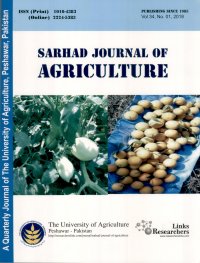Repositioning Nigeria’s Agricultural Extension System Towards Building Climate Change Resilience
Chibuzo Uzoma Izuogu1*, Robert Ugochukwu Onyeneke1, Loveday Chukwudi Njoku1, Gillian Chidozie Azuamairo1 and Mary Chikerenma Atasie2
ABSTRACT
This paper focused on redefining agricultural extension practice in Nigeria in response to the challenges of climate change. We reviewed 58 articles from research databases that were in line with our inclusion criteria for adequate understanding of the current state of agricultural extension practice in Nigeria and climate change concerns. The review identified the effects of climate change on agricultural extension practice, ascertained the training needs of agricultural extension workers towards climate change resilience, highlighted the strategies for repositioning the Nigerian agricultural extension system for climate change resilience and ascertained the opportunities and barriers for agricultural extension system towards building climate change resilience. Results show that climate change has adversely affected agricultural extension practice in Nigeria by worsening its operational environment. Changes in rainfall pattern have made it cumbersome for effective implementation of extension advice in real time. Training needs of extension workers for climate change resilience among others include the need to bridge digital divide, implementation of strategies for a better interface with development partners and optimization of the use indigenous mitigation strategies for climate change. The review recommends that essential strategies that must be in-cooperated in the extension service delivery in Nigeria should include adoption of new scenario thinking in communicating resilience building, establishment of emergency management unit by the agency, encouraging the involvement of the private sector in the extension service, transferring of research results on best affordable resilience practices to farmers as well as ensuring that government and other agencies are kept abreast with farmer’s feedback on their challenges in building climate change resilience.
To share on other social networks, click on any share button. What are these?








